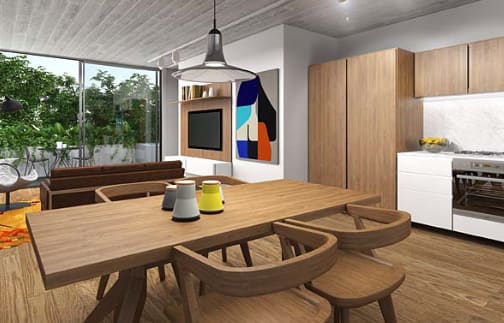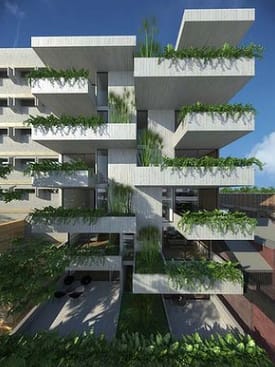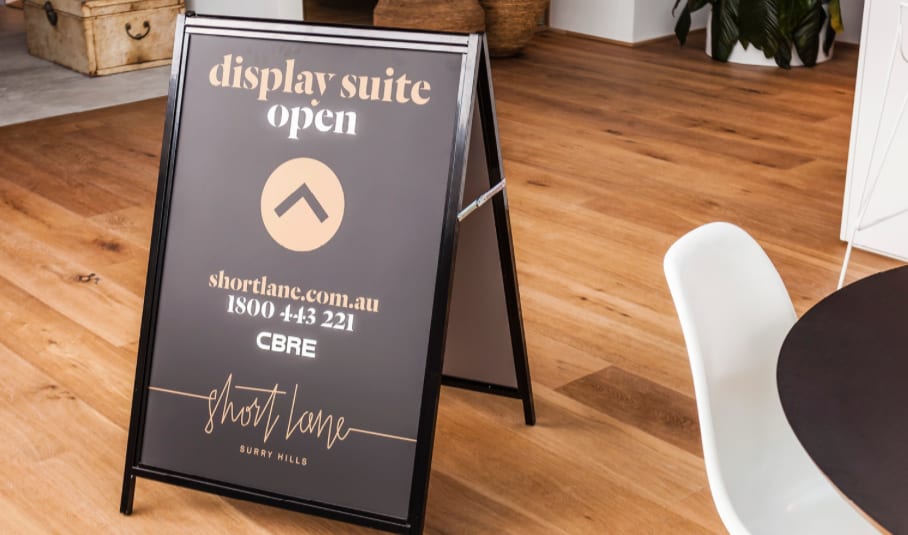
Slow developer settles court case after taking 11 apartment buyers to court under 'sunset clawback' laws


The developer was taking some of his apartment buyers to court after they refused to allow him to tear up their sales contracts following construction delays, in the first legal test of the “sunset clawback” laws.
The developer-builder Kanaan Kanaan accused some of his buyers as "being greedy about it."
The case in NSW Supreme Court was seen as a major test of laws designed to protect consumers buying new apartments.
However final negotiations for a settlement began only after acting Justice Arthur Emmett wondered aloud in the courtroom whether the new laws gave him the power to order a result with a sum of money to be paid by the developer.
The court heard that, instead of the projected 15 months to complete the project, it had taken more than 52 months.
The potential owner-occupiers and investors bought into the building in 2013 but the apartment weren’t finished by October 30, 2016, the date by which time the so-called “sunset clause” was triggered, which enables either the developer, or the purchaser, to cancel the sale and rescind the contracts if the building was not finished by its proposed completion date, noted Fairfax Media.
In late 2015, legislation was introduced in the Parliament to protect buyers against developers intentionally delaying completion then rescinding contracts in order to cash in on rising property prices. Under the new laws, the developer has to justify his actions.

Developer-builder Kanaan Kanaan, of Komplete Constructions, wrote to the buyers of units in his six-level Short Lane building at 352 Bourke Street five days before the cut-off date to tell them he would be rescinding their contracts and refunding their deposits.
If the developer wishes to rescind a contract, he must first seek permission from the purchaser to go through with the termination, under the laws championed by the then NSW Minister for Innovation and Better Regulation Victor Dominello.
If the buyer does not agree, then the developer can apply to the NSW Supreme Court for permission to allow the rescissions to take effect.
Acting Justice Arthur Emmett in the Equity Division of the court was told that Kanaan had been hampered by a number of problems, delays and postponements which made it impossible for him to complete the Woods Bagot-designed apartments in time.
Instead of the 15 month target, more than 52 months went by since the Development Application was approved.
“There were major delaying events that made it impossible to complete the project despite his best endeavours,” his barrister Ian Roberts told the court. “These events postdate the sales contracts.”
It is understood the eight buyers who have refused the developer permission to rescind – three others agreed and four more agreed with an extra payment – will be arguing that cancellation of their contracts will mean the developer will make a windfall because of the “extraordinary rise in the value of Sydney property” in the interim.
They will be alleging that the delays were only due to poor management, a succession of applications to council, and an appeal to the Land and Environment Court.
The purchasers allege that the changes would increase the value of only the parts of the building, such as the retail lots and the four top floor apartments, that the developer retained.
But Roberts said the delays were beyond Kanaan’s control. Among them was an electrical kiosk substation that wouldn’t have enough room to be accessed when the building went up. After a number of discussions and applications, that was removed.
That meant, however, more space was freed up for retail lots at the base of the building, so consent was then sought for those and a redesign commissioned. There was also an application to add an additional floor to the building that was turned down by the NSW Land and Environmental Court in April 2016.
Consent was granted for a rooftop garden in September 2016 for the exclusive use of the developers’ top-floor apartments. Finally, there were delays in the delivery of windows and in procuring the difficult designed form at the top of the building.
